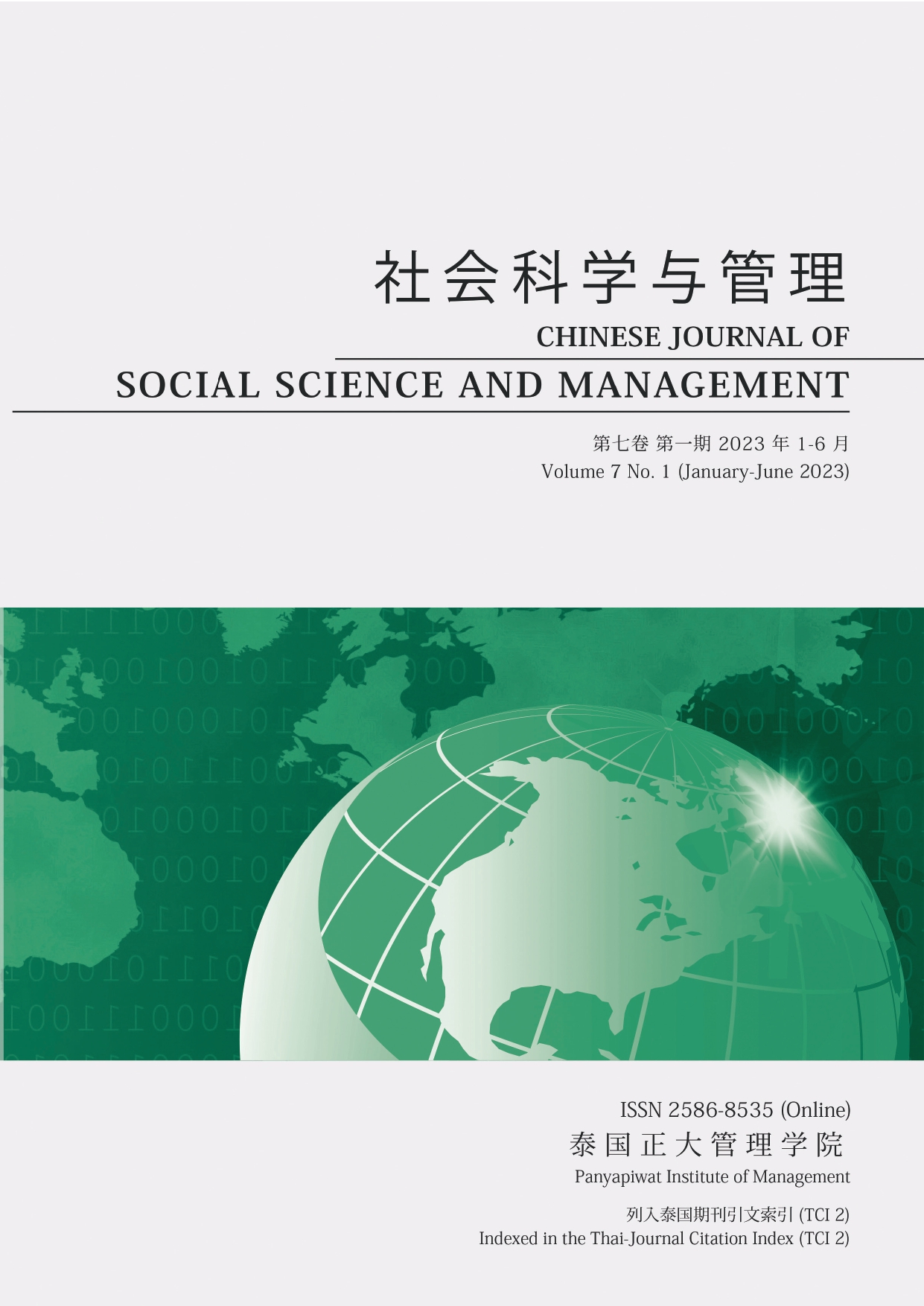THE STUDY OF CONSUMER TRUST IN ONLINE SHORT-TERM HOMESTAY RENTAL IN THE CONTEXT OF SHARING ECONOMY
Main Article Content
Abstract
In recent years, the continuous development of rural tourism and sharing economy in China has caused homestay, as an emerging sharing economy, to experience explosive growth. However, a series of contradictions and problems between buyers and sellers have also emerged. The characteristics of the sharing mode make the problem of interpersonal trust become one of the key factors that limit its development. The establishment of trust between sharing subjects is the core and foundation for the healthy development of consumer behavior as well as the tourism-sharing economy. Based on the trust theory, the trust transfer theory and consumer behavior based on the rational behavior theory, this paper attempted to analyze the influence of online short-term rent trust on consumer behavior under the background of the sharing economy. In this model, the regulating effect of folk customs was added to further explore the formation mechanism of online short-rent consumption behavior at homestay facilities under the background of the sharing economy. This study focused on the online short-rent consumers of homestay accommodations as the research sample and carried out research using the background of the sharing economy in China.
Article Details

This work is licensed under a Creative Commons Attribution-NonCommercial-NoDerivatives 4.0 International License.
Chinese Journal of Social Science and Management Editorial Division
The Office of Research and Development, Panyapiwat Institute of Management
85/1 Moo 2, Chaengwattana Rd., Bang Talat, Pakkred, Nonthaburi 11120, Thailand
Tel. 02 855 01048 E-mail: cjssm@pim.ac.th
References
Ajzen, I., & Fishbein, M. (1975). A bayesian analysis of attribution processes. Psychological Bulletin, 82(2), 261-277.
Dong, C. H. (2016). Sharing economy: Theory and reality. Journal of Guangdong University of Finance and Economics, 31(5), 4-15. [in Chinese]
Ert, E., Fleischer, A., & Magen, N. (2016). Trust and reputation in the sharing economy: The role of personal photos in Airbnb. Tourism Management, 55(16), 62-73.
Felson, M., & Spaeth, J. L. (1998). Community structure and collaborative consumption. American Behavioral Scientist, 21(4), 614-624.
He, L. (2016). Analysis on the business model of online short-term rent enterprises--Taking Xiaozhu short-term rent as an example. Modern Business, 30(6), 54-59. [in Chinese]
Mcknight, D. H. (2001). What trust means in e-commerce customer relationships: An interdisciplinary conceptual typology. International Journal of Electronic Commerce, 6(2), 65-72.
Mohlmann, M. (2016). Digital trust and peer-to-peer collaborative consumption platforms: A mediation analysis. Social Science Electronic Publishing.
Pearce, J. L., & Hamilton, J. R. (2017). Controlled trial of orally administered in acute infantile diarrhea. Journal of Pediatrics, 84(2), 261-262.
Rotter, J. B. (1971). Generalized expectant for interpersonal trust. American Psychologist, 26(5), 443-452.
Sun. J., & Li, Y. (2018). The influence of tourist motivation on revisit intention of cultural and creative tourism destination: The mediating role of cultural contact. Journal of Xi’an University of Architecture and Technology (Social Science Edition), 37(4), 56-59. [in Chinese]
Van, H. (2014). User acceptance of information system. MIS Quarterly, 28(4), 695-704.
Wang, Y. Z., Zhang, R. Y., & Bai, Z. Y. (2018). Consumers’ willingness to accept the mode of sharing economy--An investigation based on the perspective of consumer behavior decision-making. Economics and Management, 28(3), 38. [in Chinese]
Wang, W., & Chen, L. (2013). Real tourism: Madeira strategist be and breakbeat industry in Taiwan. International Journal of Holiday Management, 23(3), 278-286. [in Chinese]
Wu, G. J. (2016). A review of Airbnb and Uber models based on sharing economy and social networks. Industrial Economics Review, 26(2), 103-112. [in Chinese]
Xie, X. M., & Shi, J. J. (2016). An empirical study on the formation mechanism of consumer trust under sharing economy. Technical Economy, 35(10), 122-127. [in Chinese]
Ye, D. W. (2005). An overview of online trust: Concepts, elements, and implications. Computers in Human Behavior, 21(1), 105-125. [in Chinese]
Zucker, L. (1985). Production of trust: Institutional of the economic structure. Organizational Behavior, 8(1), 53-111.


